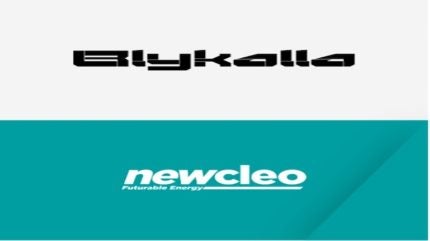
Swedish nuclear energy company Blykalla and France-headquartered nuclear start-up newcleo have signed an agreement for the joint research and development of materials for lead-cooled fast reactors (LFRs). The partnership entails the exchange of materials, results, and associated data to assist their respective R&D programmes. By combining findings from their individual programmes as well as industrialisation processes, the parties say they can “work toward expediting the commercialisation of LFR technology crucial for Europe’s decarbonisation efforts”.
Blykalla’s advancements in material sciences, which it says are based on decades of research on metallurgy and the development of proprietary IP, “provide a foundation for the safe and efficient operation of lead-cooled reactors”. Newcleo says its advanced materials knowledge, R&D programmes, and laboratories can support the testing, industrialisation, and qualification of such materials.
By collaborating, Blykalla and newcleo will have access to each other’s research facilities and expert personnel, facilitating the exchange of materials, testing results, and data. This collaboration will enable both companies to enhance material solutions, ensuring the reliability and longevity of next-generation nuclear reactors.
This also serves to support the optimisation of supply chains in line with the goals of the European Union’s SMR Alliance, facilitating cross-border knowledge exchange in the licensing process for each party’s reactor technologies. Both companies are already collaborating in their respective working groups on topics of mutual interest.
The agreement will allow Blykalla and newcleo to support each other in developing their material solutions and testing services. The exchange of services and information relating to this collaboration “will not be used for commercial purposes, or the development of any new technology outside of this agreement”. Each party’s background intellectual property will remain their own, allowing both companies to develop their own LFR solutions.
According to newcleo Founder & CEO Stefano Buono, the founders from both companies “pioneered the field of lead-cooled fast reactors research since the nineties and have a long history of collaborative work”. He added that all developers of small modular and advanced modular reactors (SMRs and AMRs) are “working to ambitious timelines to bring our respective projects online and start generating the low-carbon electricity so crucial to delivering the energy transition”. He added: “This type of collaboration is designed to share knowledge which will help each party accelerate their development programmes, in service not only of our respective projects but for the new nuclear sector as a whole. When the need is urgent and time is short, collaboration is key, and I’m delighted that newcleo and Blykalla can support each other in achieving our common goal.”
Jacob Stedman, CEO of Blykalla said both companies “recognise the urgency for developing sustainable energy to achieve decarbonisation, and LFR technology offers a pathway to do so”. He noted: “By combining our extensive expertise in corrosion-resistant materials with newcleo’s industrial capabilities, we are positioned to advance the commercialisation of lead-cooled reactor technology.”
Blykalla founded in 2013, is a spin-off from the KTH Royal Institute of Technology in Stockholm. Its SMR prototype SEALER (Swedish Advanced Lead-cooled Reactor) design is a fast compact reactor with passive safety. Each reactor will have a 55 MWe capacity, which can be increased by installing multiple units at the same location. The reactor is designed with the smallest possible core that can achieve criticality in a fast spectrum using 19.9% enriched nitride fuel.
Backed by partners including Uniper, ABB, OKG, and the Royal Institute of Technology, Blykalla has secured a SEK9m ($844,000) grant from the Swedish Energy Agency and a €17m ($17.77m) investment from the EU. The company plans to achieve criticality for its first SEALER reactor by 2030 and begin serial production in the 2030s.
While the company website has details of the overall design, fuel and the safety features of the reactor, it says nothing about the fast reactor technology, which is currently only operational in Russia, where the world’s first ever lead-cooled fast reactor is nearing completion. Hitherto only sodium has been used as the liquid metal coolant in fast reactors.
According to newcleo’s delivery roadmap, the first non-nuclear pre-cursor prototype of its LFR-AS-30 reactor is expected to be ready by 2026 in Italy, the first reactor operational in France by the end of 2031, while the final investment decision for the first commercial power plant is expected around 2029. Newcleo said its LFR will “serve as an industrial demonstrator, a showcase for newcleo’s technology, and contribute to the development of the nuclear sector in France”.
The newcleo website includes a mock-up of the LFR reactor but provides very little technical information about the reactor design. However, newcleo has been very active in fundraising and signing partnership and collaboration agreements. Its business now counts over 90 partnerships, and more than 1,000 employees based in 19 locations across France, Italy, the UK, Switzerland, and Slovakia, including three manufacturing facilities. Since 2021 the company has raised a total of over €537m from institutional and individual investors and has seen an increasing number of European players joining its growing funding base – which to date counts over 700 shareholders.
Currently, the only operating liquid metal-cooled fast reactors are in Russia, using sodium as the coolant. Russia is also constructing the world’s first ever lead-cooled SMR (Brest-OD-300) in Seversk as part of a facility to demonstrate an on-site closed fuel cycle. This reactor is based on decades of complex research and development supported by the entire Russian nuclear industry. It is due to begin operation in 2029. By contrast, newcleo’s and Blykalla’s technologies remains in the very early conceptual design stage.






